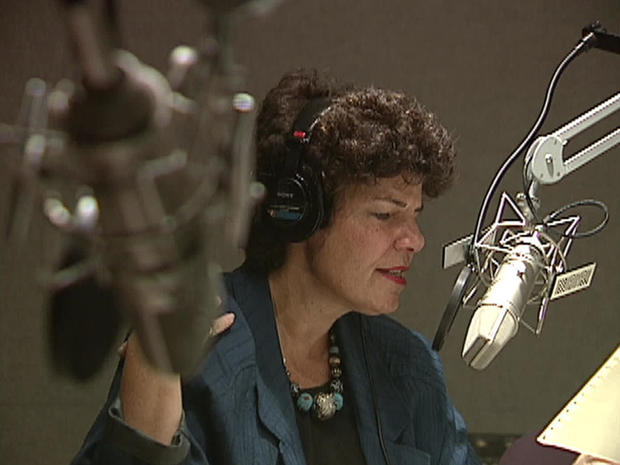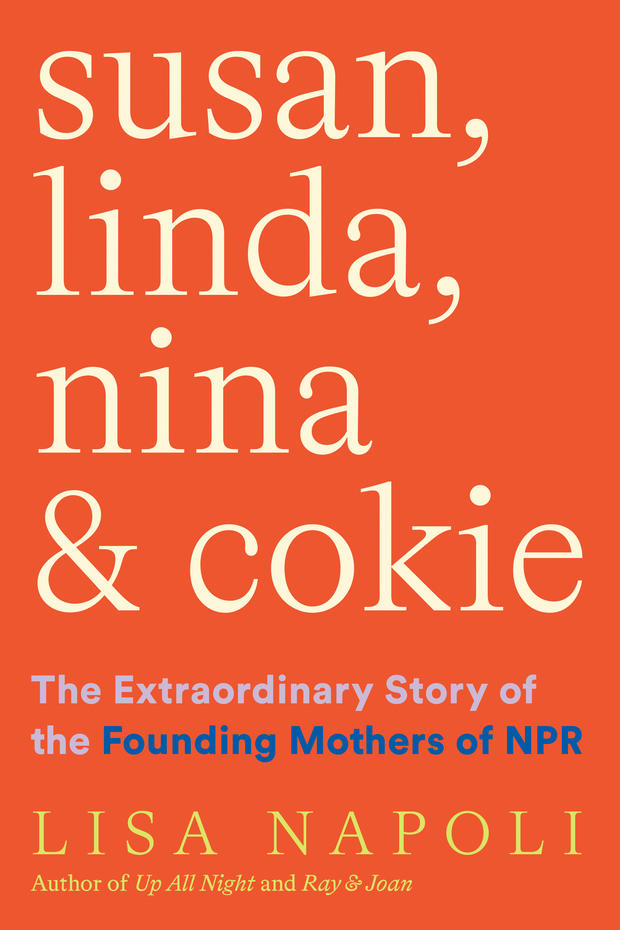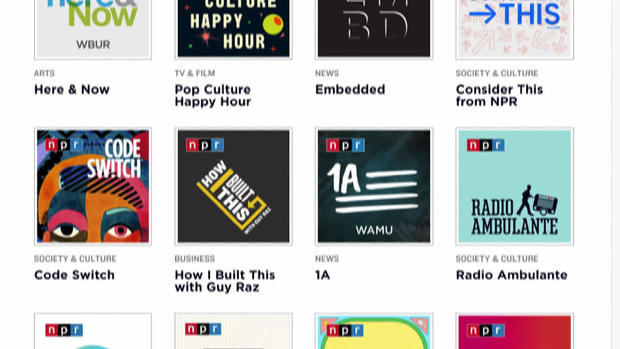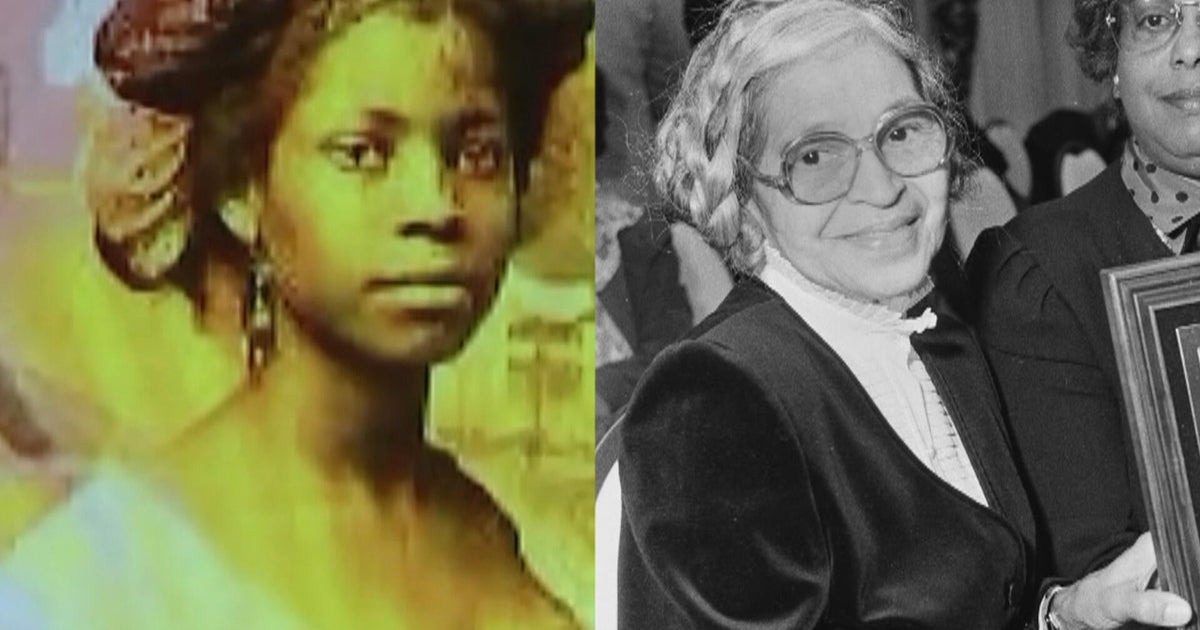NPR turns 50
The sound of National Public Radio means many different things to its 60 million weekly followers. There's in-depth news coverage with "Morning Edition," "All Things Considered" and "Weekend Edition." Music's biggest stars come to NPR headquarters in Washington, D.C., to play for staff members (and millions of fans) at "Tiny Desk Concerts." And there's even a weekly quiz show, "Wait, Wait … Don't Tell Me!," where "Sunday Morning" correspondent Faith Salie has been a panelist for a dozen years.
It all began fifty years ago.
When Salie asked Susan Stamberg what was it like to be at NPR in 1971, she replied, "Oh, golly, it was all raw and new and so exciting. We had no resources. We had no idea what we were doing. And we went on the air!"
Stamberg was there on Day One, hired as a tape editor. "Around our daily terror, we really did realize that we were inventing something that had not existed."
Very soon, she became the co-host of "All Things Considered" – and the first woman in the country to anchor a national nightly news program.
To Bill Siemering, who was the network's first director of programming, Stamberg was "the voice of NPR that I wanted."
Siemering had a very specific vision for the sound of NPR shows. "And this made people uneasy," he said.
Why? "We had a network, and so they were expecting it to sound like CBS, and it didn't!"
Siemering, who would go on to be awarded a MacArthur Fellows "genius" grant – wrote NPR's original mission statement.
Salie asked, "How did you conceive of NPR being different from commercial radio?"
"Because it's not about ratings; it's purpose-driven," he replied. "And so, I wrote: 'It doesn't regard its audience as a market, but as curious, complex individuals who are looking for some understanding, meaning and joy in the human experience.' It's all about connecting."
Siemering wanted people on the air to talk, to sound natural, and not announce.
Stamberg recalled, "Bill said, 'Be Yourself,' and that meant the world to me."
Stamberg's commanding voice paved the way for NPR's next 50 years. Many within NPR credit much of its early success to the leadership of its four "founding mothers": Stamberg, along with ground-breaking correspondents Linda Wertheimer covering politics and Congress; legal affairs correspondent Nina Totenberg; and the late Congressional correspondent Cokie Roberts.
One lesson of the founding mothers was to be generous with your skills, said "All Things Considered" co-host Audie Cornish. "Cokie Roberts, like, she called me and said, 'Hey, kid, like, what's going on? How are you doing in Congress?' Susan would listen to my work and give me notes. And I appreciated that."
"Generosity" is a word often heard around NPR – and yes, this is about those ubiquitous pledge drives. Most of NPR's funding comes from corporate sponsors, and from independent public radio stations around the country that buy its programming.
"It's not a profit-driven enterprise, right? It's there for the greater good," said Margaret Low. "And it counts on people to, like, open up their hearts and open up their pocketbooks to help pay for it."
Low began at NPR in 1982, and today is CEO of WBUR, Boston's NPR news station.
"We got letters this year from people who said, 'I'm not working right now, but here's $25. It's the most I could give, but you mean the world to me,'" Low said.
Eric Deggans was hired to be NPR's first full-time TV critic. "They hired a Black male to do it, and I think that says something," he said.
But even with a fiercely loyal audience of millions, Deggans said there are things that NPR could do better, such as hire an even more diverse staff, and produce more inclusive programming.
Salie asked, "Do you think a lot of Black Americans listen to NPR?"
"Uh, no. No. No, they don't," Deggans replied. "I think Black folks, we have a highly-developed sense of when our culture is included in programming. NPR is not that."
The radio audience is 81% White, but Deggans said NPR is reaching new and younger listeners, especially through podcasting. "We're trying to catch up, you know? And we're still not where we need to be," he said.
Between 1978 and 1995, Ira Glass did just about every job at NPR; he became one of the network's most famous graduates. He told Salie, "I didn't know anybody who listens to NPR. I had literally never heard of it."
And today, he said, NPR could be more open to innovative ideas on the radio.
"What was happening at NPR when I first arrived there was, there were a lot of people experimenting with how do we use this medium in this way that it's never been used? And it very much felt like an experiment."
His experiment, "This American Life," debuted in 1995, and last year became the very first radio program to win a Pulitzer Prize.
Though it airs on public radio stations, Glass emphasized that "This American Life" is not an NPR show.
"Why not?" asked Salie.
"I wanted NPR to distribute it," he laughed, "but NPR didn't want to distribute it. The people who were in charge of making those decisions, they just didn't get the show. They didn't like the show. They didn't understand it."
Obviously, Glass did very well – and so does NPR. But in a world of so many choices, Susan Stamberg said what her network provides is more necessary than ever.
Salie asked her, "What do you think it will take for NPR to have another 50 years?"
"I don't know what the future of radio programs, per se, will be," Stamberg replied. "It may not be that long. But people will always listen and want to hear stories told by human voices."
READ AN EXCERPT: "Susan, Linda, Nina & Cokie: The Extraordinary Story of the Founding Mothers of NPR" by Lisa Napoli
For more info:
- National Public Radio
- Podcast: "Consider This" (NPR)
- "This American Life"
- WBUR, Boston
- Susan Stamberg on Twitter
- Audie Cornish on Twitter
- Bill Siemering on Twitter
- Eric Deggans on Twitter
- "Susan, Linda, Nina & Cokie: The Extraordinary Story of the Founding Mothers of NPR" by Lisa Napoli (Harry N. Abrams), in Hardcover, eBook and Audio formats, available via Amazon and Indiebound
- lisanapoli.com
Story produced by Jay Kernis. Editor: Chad Cardin.






